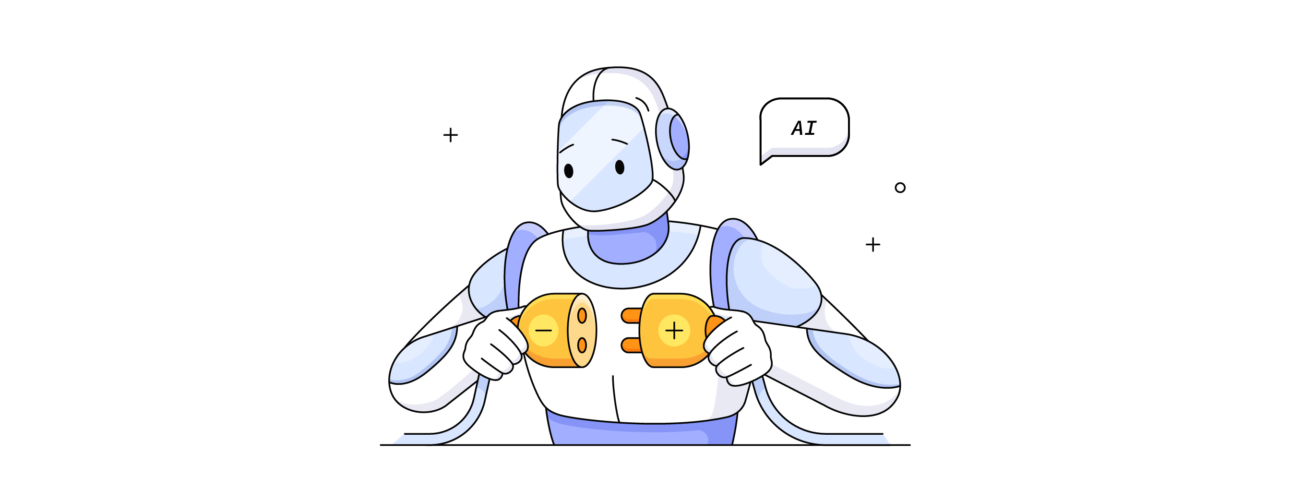
Advantages and disadvantages of artificial intelligence
AI can perform various tasks, including content creation, code generation, speech recognition, language translation, and decision-making. Today, developers are trying to further “humanize” AI and address the issue of ethical use. Let’s take a look at the broader implications of AI, weighing the pros and cons.
Artificial intelligence-based services have the following advantages:
- The efficiency of machine intelligence is not comparable to human intelligence. Monotonous and repetitive tasks do not affect its performance. Automation is a rational solution for repetitive processes in any sphere.
- High accuracy and speed of data processing. Artificial intelligence algorithms do not get tired and perform any number of tasks equally fast.
- Personalization of user experience. AI-powered products increase sales by being able to deeply analyze data such as purchase history, online interactions, search queries, and browser actions.
- Handling huge amounts of data to find trends and patterns, deep analysis and predictions. For marketers, these are essential day-to-day tasks that are time-consuming when performed manually.
- Reduced labor costs.
- Continuity of processes – AI doesn’t burn out, get tired, get distracted, isn’t late, and doesn’t take offense.
- Performing potentially dangerous tasks for humans, taking part in space exploration or inaccessible corners of the planet, interacting with hazardous chemicals, and working in disaster areas.
- Lack of emotional intelligence – robots make decisions based solely on a set of data.
- Self-learning ability – AI systems learn and improve as the system is used. The more data AI receives, the faster it learns.
- Round-the-clock access – AI can be used at any time of the day. It has no idea about ethics and doesn’t feel anything.
Despite the obvious advantages of artificial intelligence over natural intelligence, it has never been able to replace humans fully. Perhaps the human himself did not want it, or AI’s shortcomings did not allow it:
- Poorly reasoned decisions – the robot does not explain why it made this or that decision.
- The possibility of making a mistake or confusing data always exists because artificial intelligence is imperfect as it it is still learning.
- Not relevant for non-standard and logical tasks as it is built on complex algorithms.
- Contributes to job cuts, i.e., increased unemployment.
- The possibility of abuse of machine intelligence makes it a dangerous weapon in the hands of fraudsters – with the help of AI services, they forge voices, photos, videos, documents, and reports. Artificial intelligence is used for hacking, cyberattacks, and surveillance.
- Lack of control and responsibility for AI actions and decisions
- Reinforcement of existing stereotypes can increase discrimination in many areas of life.
- Dependence on machine intelligence can lead to the weakening of critical thinking skills in humans.
- High cost of creation and implementation. The costs of developing, implementing, and maintaining robots are not affordable for everyone. So far, only large companies can afford to use modern assistants. Small firms do not have a sufficient budget, so keeping up with the times is challenging.
- Privacy breach. AI services collect and analyze huge amounts of user information, threatening their security.
Scientific and technical advances in all areas of modern life increasingly require automation of processes, which means AI is now with us forever. And whether humankind will risk rewarding artificial intelligence with even greater skills or will be afraid to let robots out of control – time will tell.

